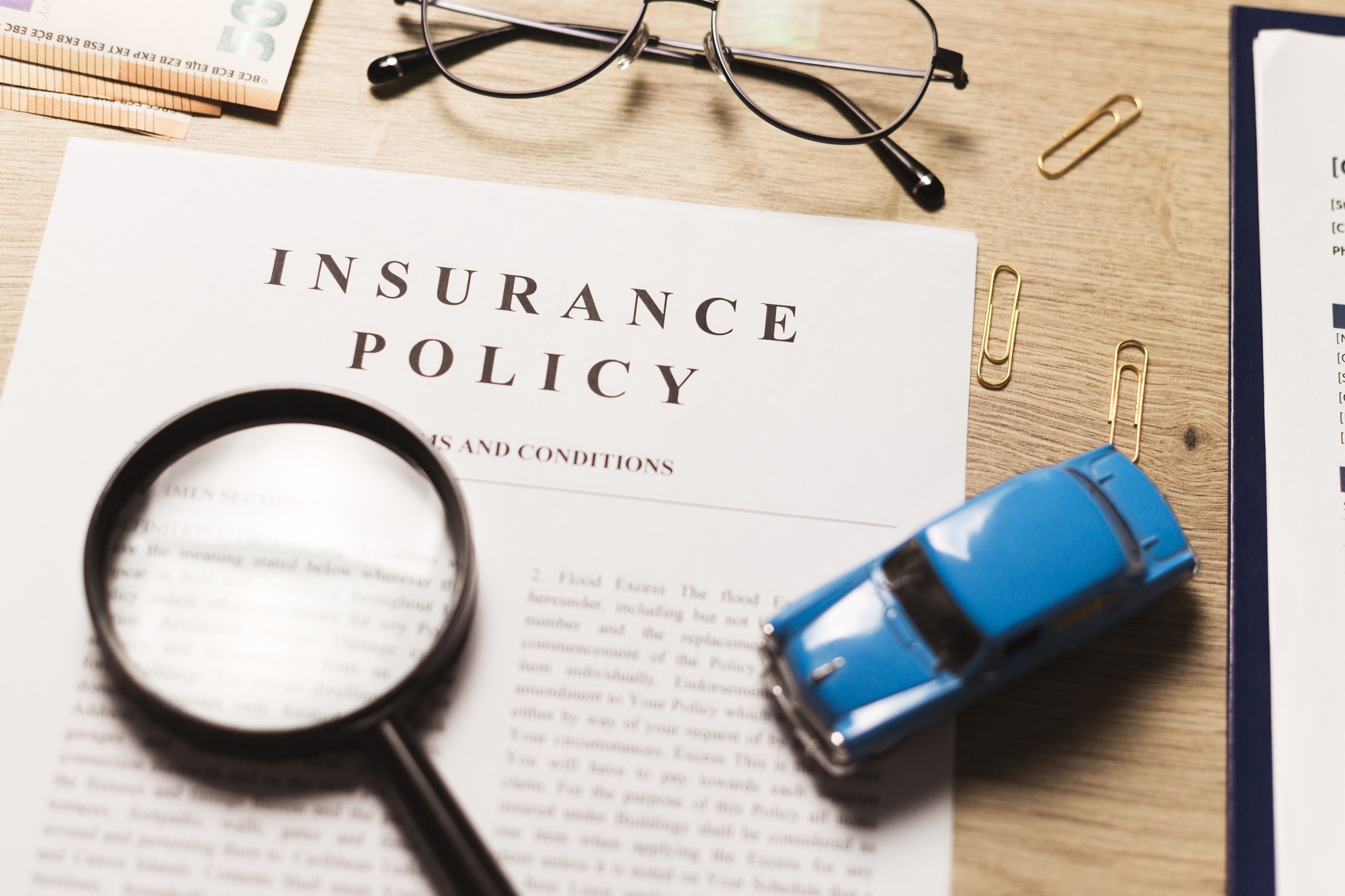Key Takeaways

- Understand Company Policies: Familiarize yourself with your organization’s specific guidelines regarding personal use of company vehicles to avoid potential issues.
- Tax Implications: Personal use is considered a taxable fringe benefit by the IRS; it’s essential to report it accurately to maintain compliance and avoid liabilities.
- Insurance Coverage: Verify with your insurance provider regarding coverage limits and terms related to personal use to mitigate risks in case of accidents.
- Employee Morale and Productivity: Allowing personal use can boost employee satisfaction, flexibility, and overall work efficiency, benefiting the business’s performance.
- Maintenance Responsibilities: Regular maintenance checks and prompt reporting of issues are crucial to maintaining company vehicles and minimizing long-term repair costs.
- Define Acceptable Use: Clearly outline what constitutes acceptable personal use in your policy to prevent misunderstandings and ensure accountability among employees.
Using a company vehicle for personal errands can be a tempting perk, but it comes with its own set of rules and responsibilities. Whether you’re commuting to work, running errands, or heading out for a weekend getaway, understanding the implications of personal use is crucial. It’s not just about convenience; it can also affect your taxes and insurance.
Before you hit the road, it’s essential to know your company’s policy on vehicle use. Many organizations have specific guidelines that outline what’s acceptable and what’s not. By familiarizing yourself with these rules, you can avoid potential pitfalls and ensure you’re using that vehicle responsibly. Let’s dive into the key considerations and best practices for navigating personal use of a company vehicle.
Overview Of Personal Use Of Company Vehicle

Understanding the personal use of a company vehicle is crucial for small businesses. Personal use often requires careful consideration of company policies and regulations. Employees must recognize that using a company vehicle for personal errands can lead to tax implications and affect insurance coverage.
Using a company vehicle personally affects the vehicle’s reported value. The IRS may classify personal use as taxable income, leading to additional reporting responsibilities. Small businesses must ensure employees are aware of reporting requirements related to personal use.
Insurance coverage is another essential aspect. Personal use can influence the terms of your vehicle insurance policy. It’s vital to confirm with your insurance provider about the coverage limits and stipulations for personal use to avoid complications.
Additionally, establishing clear guidelines in your company policy may prevent misunderstandings. Guidelines should include definitions of acceptable personal use, reporting procedures, and potential consequences for misuse. Communicating these policies helps manage expectations and maintain accountability among employees.
Benefits Of Allowing Personal Use

Allowing personal use of company vehicles offers significant advantages for small businesses. It can boost employee morale and enhance overall operational efficiency.
Employee Satisfaction
Granting employees the ability to use company vehicles for personal errands fosters trust and job satisfaction. Employees value the freedom to take vehicles home, leading to a stronger employer-employee relationship. Studies show that satisfied employees are more productive and engaged, directly benefiting your business’s performance.
Increased Job Flexibility
Providing personal use of company vehicles enhances job flexibility for employees. Employees can seamlessly transition between work and personal activities without switching vehicles, making their daily routines more efficient. This flexibility reduces transportation-related stress, resulting in better focus and productivity at work. By embracing this policy, you demonstrate a commitment to employee well-being while improving your business’s operational efficiency.
Tax Implications

Personal use of a company vehicle carries significant tax implications for small businesses. Understanding these implications helps ensure compliance and avoids unexpected liabilities.
Understanding Taxable Benefits
The IRS considers personal use of a company vehicle a taxable fringe benefit. This benefit includes activities such as commuting, running errands, or weekend trips. The value of this personal use counts as taxable income and must appear on your Form W-2. Calculating this value requires methods like the Annual Lease Payment Method or Annual Lease Value Method. The Standard Mileage Rate Method, however, isn’t available for owner-employees. Clearly documenting the nature of vehicle usage prevents potential tax issues.
Reporting Personal Use
Report personal use accurately to the IRS to maintain compliance. If you use a company vehicle for personal errands, you must inform your accounting department or tax advisor. Ensure all personal use is substantiated with detailed records. This proactive approach reduces the risk of audits and ensures you’re reporting taxable benefits correctly. Following established guidelines in your company’s vehicle use policy also streamlines reporting processes, helping your small business maintain transparency and accountability.
Company Policies And Guidelines

Establishing clear policies for the personal use of company vehicles is essential in a small business. These policies not only protect your assets but also ensure compliance and fairness among employees.
Defining Personal Use
Defining personal use is critical. Personal use of a company vehicle refers to any use not directly related to business activities. This may include errands, commuting, or family-related trips. To maintain transparency, your policy should clearly outline what constitutes acceptable personal use. For example, specify the frequency of personal trips allowed and the types of activities considered permissible.
Establishing Limits
Establishing limits helps manage expectations and mitigate risks. Companies typically assign vehicles to employees based on job requirements, reserving vehicles for those who need them. For employees with less need, access to a motor pool with prior approval may be more suitable. It’s crucial to prohibit non-employees from using company vehicles to minimize liability risks. Clearly communicating the consequences of misuse reinforces accountability, ensuring employees understand their responsibilities concerning both personal and business use.
Risks And Considerations

Using a company vehicle for personal purposes comes with several risks and considerations that you must address to protect your small business.
Liability Issues
When employees use company vehicles for personal errands, liability issues emerge. Employers hold financial and legal responsibility for injuries and property damages caused by employees while driving these vehicles. Coverage extends to accidents occurring during both business and personal use. Ensuring that your commercial auto insurance includes personal use is vital. If an accident occurs while an employee is using the vehicle for personal reasons, damages are typically covered by this insurance. However, expect potential increases in insurance fees due to the elevated risk associated with personal use. Clarifying liability terms in your company policy helps mitigate misunderstandings.
Vehicle Maintenance Concerns
Personal use of company vehicles can also lead to maintenance issues. Regular maintenance checks become crucial, as increased driving could cause wear and tear on the vehicle. Employees should understand the importance of reporting any maintenance needs or mechanical issues promptly. Failing to address maintenance concerns can result in more significant problems down the line, impacting business operations and increasing repair costs. Establishing a maintenance schedule and requiring employees to adhere to it ensures vehicles remain in good condition, reducing long-term expenses associated with repairs and replacements.
Conclusion

Navigating the personal use of a company vehicle requires a clear understanding of policies and responsibilities. By being aware of tax implications and insurance coverage, you can avoid unexpected liabilities and maintain compliance. Establishing transparent guidelines not only protects you but also fosters trust between you and your employer.
Embracing personal use can enhance morale and productivity, making it a valuable benefit for both employees and businesses. Just remember to keep detailed records of your vehicle usage and communicate any maintenance needs promptly. This approach will not only keep the vehicle in good condition but also ensure a smooth balance between personal and business activities.
Frequently Asked Questions

What are the tax implications of using a company vehicle for personal errands?
Using a company vehicle for personal errands can be classified by the IRS as a taxable fringe benefit. Employees must report this personal use on Form W-2, which requires maintaining accurate records of vehicle usage to ensure compliance and prevent unexpected tax liabilities.
How does personal use of a company vehicle affect insurance coverage?
Personal use can impact insurance coverage because employers are held liable for accidents or damages that occur during personal use. It is crucial for employees to verify that their commercial auto insurance covers personal use and to understand any additional costs associated with this coverage.
Why should companies establish clear policies on personal vehicle use?
Establishing clear policies helps define acceptable use, outlines responsibilities, and sets consequences for misuse. This clarity manages expectations, reinforces accountability among employees, and prevents misunderstandings regarding personal vehicle use.
What benefits can arise from allowing personal use of company vehicles?
Allowing personal use of company vehicles can enhance employee morale and productivity, providing flexibility for employees. This approach fosters trust, reduces transportation-related stress, and demonstrates a commitment to employee well-being, ultimately benefiting business performance.
How can employers mitigate risks associated with personal use of company vehicles?
Employers can mitigate risks by setting clear guidelines on personal use, prohibiting non-employees from driving the vehicles, and ensuring that insurance policies cover personal use. Additionally, regularly checking vehicle maintenance can prevent issues related to wear and tear.
Image Via Envato: prathanchorruangsak, imagesourcecurated, bnenin, Image-Source, alvarogonzalez, LightFieldStudios, Rawpixel, Vladdeep



